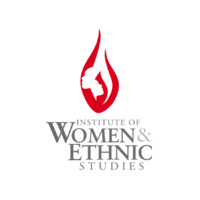
“Documenting Lived Experiences with IWES”
by Vaishnavi Kandala
This past fall, I had the honor of being a student research assistant at the Institute of Women and Ethnic Studies, a national non-profit organization based in New Orleans. IWES aims to uplift individuals of color and their families by providing tailored health and wellness services to address the lack of options for physical, mental, and emotional health. They do this through advocacy, education, research, and direct services.
I was able to conduct research in the Maternal and Child Health team of IWES (MCH for short), under my supervisor Meshawn Tarver. Specifically, I worked on My Body. My Voice. My Baby. My Support., which investigates the barriers birthing individuals have to face when attempting to breastfeed. This is a continuation of Pooja Talati’s work, a former IWES and Newcomb intern (check out her post!).
The start of my internship (as all of the other interns) was delayed due to Hurricane Ida, so we started later in the semester. Throughout my time at IWES, I was able to create a consulting report for breastfeeding groups in New Orleans that aimed to specifically create solutions for the issues brought up by birthing individuals in the focus groups. We brought up several issues that birthing individuals of color face, from lack of self-efficacy to hypersexualization. Our recommended solutions mainly focused on specific improvements for healthcare providers, access to inclusive support groups, and accessibility to general breastfeeding education.
My other responsibility at IWES is to help write a research article that explores the effect of systemic racism on breastfeeding, which will eventually be submitted to an academic journal. Learning how to academically write is a skill that I hoped to hone during this internship, and I certainly did. I was able to contribute to parts of the journal, and I think that’s so cool to say that I did that.
I applied to this internship initially because I was interested in exploring systemic barriers in the reproductive rights field. Reproductive health, specifically the policy side of the field, fascinates me. Ineffective policy measures and structural barriers to simple reproductive resources disproportionally affects women across the world. I wanted to understand the intersectional inequity of the field in a diverse setting like New Orleans, where the disparity faced by many women is inescapable considering the system they find themselves in. I was attracted to the MCH department of IWES because their impactful intersectional projects would provide me with solid insight into the structural logistics of social justice work.
I learned a lot during my time at IWES and Newcomb. I learned how to research, I learned how to write in a concise manner, and I learned how to listen. Listening and being empathetic when it comes to scientific research dealing with lived experiences is essential. It is a skill to document people’s stories and everyday lives in a compassionate manner, and I hope to hone in on these skills in my year abroad.
Thanks so much to Meshawn, Clare, and the teams over at IWES and Newcomb for supporting me in this journey. I appreciated everything about this program: the emphasis on intersectionality, diversity, and passion. For those interested in applying, don’t be afraid to reach out to me at vkandala@tulane.edu. I would be glad to connect!
